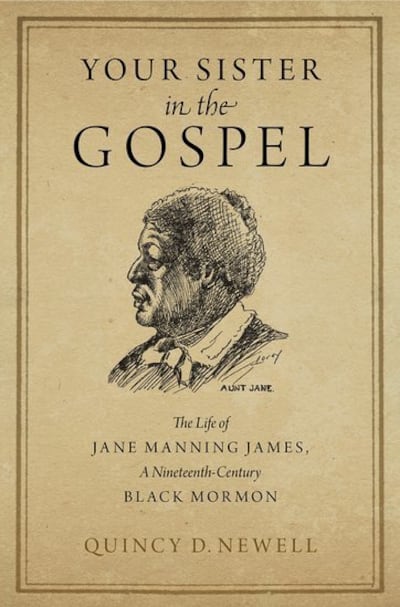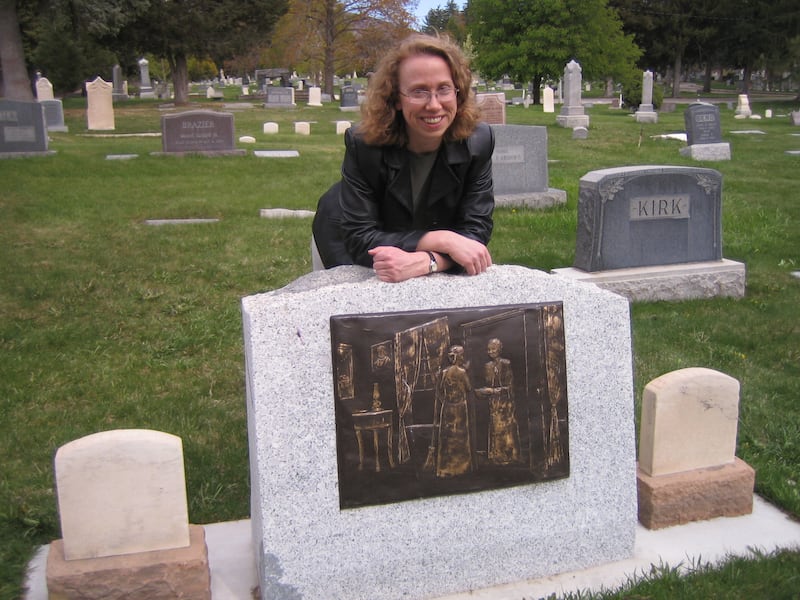“Jane Elizabeth Manning James has haunted me for more than a decade,” wrote historian Quincy Newell in the first sentence of her new book, “Your Sister in the Gospel: The Life of Jane Manning James, A Nineteenth-Century Black Mormon” (Oxford University Press, 224 pages).
Newell proceeds with a unique but important editorial choice: She refers to her subject by her first name, Jane — a rarity in academic biographies.
“For African American people, surnames were often a symbol of ‘self-ownership,’” said Newell in an email interview. “But it’s also important to recognize that all of the surnames Jane used … came from the men in her life, and were in some ways a mark of their claim on her.”
This initial decision to both honor and humanize Jane is the first big decision of the book, but Jane was on Newell’s mind long before she ever formally began her biography. No matter the focus of her research, the associate professor of religious studies at Hamilton College couldn’t get her mind off Jane.
“I kept getting drawn back to Jane’s story,” Newell said. “And she was fascinating — each detail was tantalizing, tempting me to look for more.”

As Newell worked on an unrelated project about Native American and African American members of The Church of Jesus Christ of Latter-day Saints, she began setting aside discoveries that dealt with Jane’s life.
“My file of evidence about her seemed to grow larger every time I sat down to work, so finally I decided to write the biography,” Newell said.
The result is a new book published by Oxford University Press, one of the world’s premier academic publishers. The book includes details familiar to most members of the faith. Jane was a prominent African American member of the early church. She knew the Prophet Joseph Smith. She died in Salt Lake City. And so on.
But the book also highlights lesser-known details about Jane’s life.
Newell reveals the early pioneer not only lived in Joseph Smith’s home for a time, but she handled one of his seer stones. Jane received not one, but two patriarchal blessings: one from Hyrum Smith in 1844 and one from Patriarch John Smith in 1889. She married Isaac James but was also an unmarried mother when she first came to Nauvoo, Illinois, and later married a second time after divorcing James.
“There’s also less awareness of how much she practiced spiritual gifts like speaking in tongues and healing,” Newell said.
“The other aspect of her life that surprised me,” said Newell, “was that she actually did pretty well for herself economically. When she died, she left an estate of over $1,000, a tidy sum.”
In addition to addressing both the well-known and lesser-known aspects of Jane’s life, Newell deals with the scarcity of source material.

“I tend to write books that I’ve come to call ‘needle in a haystack’ projects — books for which the evidence is one sentence here, a couple words there, an intriguing image someplace,” said Newell, who expounds at length in the book about a famous photograph thought to be of Jane. “Historian John Sensbach once referred to this as ‘documentary shrapnel.’”
Newell fills in the gaps with educated speculation drawn from her extensive expertise in American religious history, including race, gender and religious identity in the 19th century.
For example, nothing is known about the father of Jane’s first child, Sylvester. Newell handles this by addressing several possibilities and providing evidence for each. Additionally, the route Jane took on her initial trip to Nauvoo is unknown, so Newell walks readers through the common methods of transportation of the time and the possible routes Jane could have taken.
In each instance, Newell brings the time period to life, but ultimately leaves the final decisions to readers.
“Your Sister in the Gospel” is one of the most academic and comprehensive biographies ever written about Jane — though Newell emphasizes the book is intended for a large audience.
“My hope,” she said, “is that it will find a wide readership outside academic circles because I think Jane’s story is just so fascinating.”



